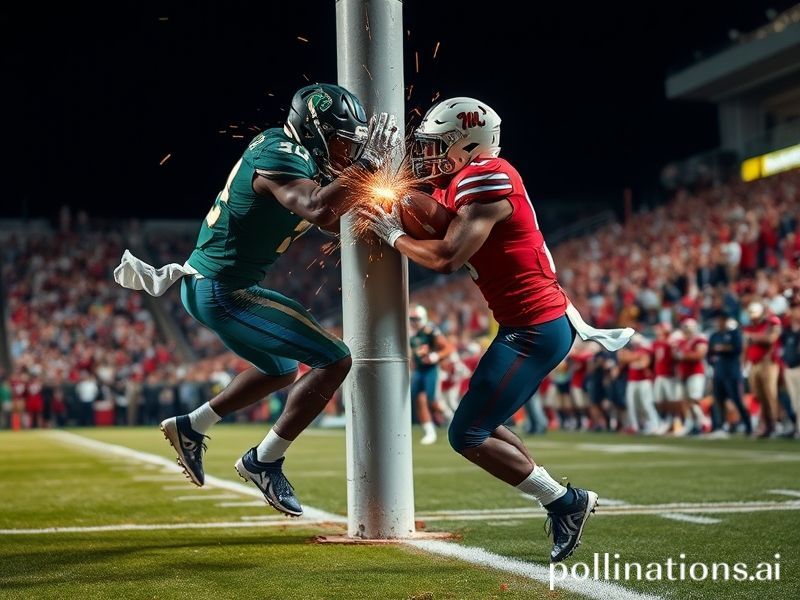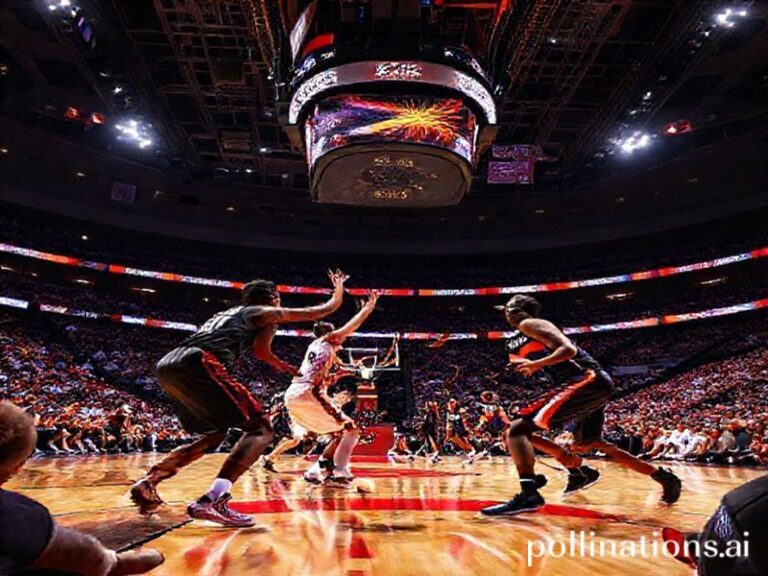From New Orleans to New World Order: How Tulane vs Ole Miss Became a Global Power Play
In the grand, ceaseless carnival of American college football—an enterprise that combines the pageantry of medieval jousting with the merchandising genius of Disney—tonight’s modest sideshow features Tulane versus Ole Miss. To the uninitiated, this may appear to be a regional skirmish over bragging rights and a bronze boot called the “Magnolia Bowl,” a trophy whose name sounds like a scented candle your aunt regifted. But step back, adjust the aperture, and the affair starts to look like a geopolitical micro-drama playing out beneath stadium lights bright enough to guide lost satellites.
First, consider the combatants’ passports. Tulane, technically located in New Orleans, markets itself as the Harvard of the humidity belt, attracting students from 48 countries who arrive eager to study public health and leave fluent in gumbo. Ole Miss, meanwhile, sits in Oxford, Mississippi, a town named after the English university it will never be, and whose Confederate-monument removals made the BBC’s “And finally…” segment last year. One campus gave us jazz; the other gave us William Faulkner and the phrase “the past is never dead.” Tonight they meet on artificial turf, a surface that shares neither soil nor history with either culture, thereby perfecting the American art of rootless spectacle.
Globally, the game is beamed to U.S. military bases from Ramstein to Okinawa, where homesick troops can watch 300-pound linemen collide in HD while the bases’ carbon footprint quietly accelerates the melting of Arctic sea ice. In Shanghai, insomniac traders monitor the live betting line as a hedge against their own plummeting property portfolios. Meanwhile, expatriate Louisianans in Dubai gather at a sports bar whose theme is “Louisiana swamp,” complete with imported humidity machines that malfunction roughly every 20 minutes—an unintended metaphor for colonial nostalgia.
The rosters themselves read like a State Department ledger: Tulane’s starting safety hails from Lagos and speaks four languages, three more than the university’s famously monolingual mascot, a cartoon wave named “Gumbo” who looks suspiciously like an anthropomorphized tsunami. Ole Miss counters with a quarterback from Southern California who has never seen a live magnolia but has memorized every TikTok audio featuring one. Their combined NIL valuations rival the GDP of several Pacific micro-nations, a fact the NCAA reports with the same pride a Renaissance pope once used to commission frescoes.
For the wider world, the game is a lesson in soft power laundering. The Southeastern Conference’s media rights deal—worth more annually than the United Nations peacekeeping budget—turns every third down into a Netflix thumbnail. European diplomats stationed in Washington quietly observe how effortlessly the sport converts tribal identity into streaming revenue, taking notes for their own separatist regions back home. If Bavaria ever secedes, expect it to launch the “Alpen Conference” complete with a $10-billion broadcast package and a trophy shaped like lederhosen.
Then there is the halftime entertainment: two marching bands reenacting the Battle of New Orleans while Katy Perry’s “Firework” bleeds from the speakers. Somewhere in Kyiv, a drone operator on break watches the pyrotechnics and thinks, “American fireworks are prettier when they’re not aimed at you.” The irony is thick enough to butter, though the stadium concessions will insist on charging extra for that.
By the fourth quarter, the scoreboard will declare a victor, but the real winner is the machinery that turned a swampy patch of Louisiana into a global stage. The loser? Possibly the English language, which must now accommodate sentences like “Tulane’s edge-rusher just crypto-sponsored a smoothie chain.” Still, the spectacle will be packaged into highlight reels, GIFs, and NFTs, ensuring that tomorrow a teenager in Jakarta can watch a 12-second clip and feel, for one algorithmic moment, the synthetic thrill of belonging to something larger than herself—never mind that the something is two universities she couldn’t locate on a map and a rivalry whose origin story involves 19th-century train schedules.
When the lights finally dim, the cleanup crew will sweep up enough glitter to stock a small galaxy, the players will ice their knees with imported cryotherapy units, and the bronze boot will catch the moonlight like a discarded relic from a forgotten war. Somewhere in the stands, a visiting Oxford don will mutter, “This is what the fall of Rome must have felt like—only with better Wi-Fi.” And he won’t be entirely wrong.







